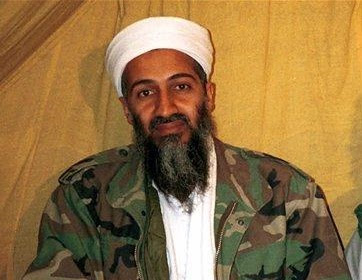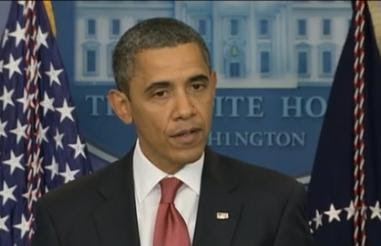 |
| Former President Bill Clinton speaks during a campaign event for President Barack Obama at the Waldorf Astoria, Monday, June 4, 2012, in New York. |
WASHINGTON (AP) -- Former President Bill Clinton said Tuesday that broad tax cuts that expire in January should be temporarily renewed, including for the wealthiest Americans, to give lawmakers time to reach a deal on a longer-term extension that should exclude the rich.
Clinton's comments were in contrast to President Barack Obama, whose re-election he is supporting. Obama has opposed renewing the tax reductions for people earning over $250,000 a year, saying they must contribute to the effort to control rampant federal deficits.
Reductions in income tax rates and other levies first enacted under President George W. Bush expire in January, at the same time that $1.2 trillion in automatic spending cuts begin to take effect. The nonpartisan Congressional Budget Office and others have warned that letting both events occur would suck so much money out of the economy that it could spark a renewed recession next year.
"What I think we need to do is to find some way to avoid the fiscal cliff, to avoid doing anything that would contract the economy now, and then deal with what's necessary in the long-term debt reduction plan as soon as they can, which presumably will be after the election," Clinton said on CNBC's "Closing Bell With Maria Bartiromo."
Asked whether that meant extending the tax cuts, Clinton said, "They will probably have to put everything off until early next year. That's probably the best thing to do right now."
He also said Republicans will press to include the wealthy in a permanent extension of the tax cuts, adding, "I don't think the president should do that."
White House officials would not comment immediately on Clinton's remarks. But officials pointed out that Obama has said repeatedly that he would not extend the Bush tax cuts for higher earners after they expire.
After the interview, Clinton spokesman Matt McKenna said the former president has said before that he favored extending all the tax cuts as part of a compromise tax and jobless benefits bill in 2010, "but does not believe the tax cuts for the wealthiest Americans should be extended again."
Republicans have insisted that tax rates for the rich should be kept low, saying many of them run companies that create jobs.
Besides the spending cuts and expiration of the tax cuts, the government is expected to need a renewal of its authority to borrow money and avoid a federal default by early next year, something that is up to Congress to decide. Without action, January will also see an end to a one-year Social Security payroll tax cut and to a provision avoiding deep cuts in Medicare reimbursements to doctors.
A postelection lame duck session of Congress is expected to address those issues, with the results depending on who wins the White House and control of the House and Senate on Election Day Nov. 6. Many lawmakers believe final decisions won't be made until next year.
Last week, Clinton said GOP presidential challenger Mitt Romney had a "sterling" record at private equity firm Bain Capital, departing from efforts by Obama's campaign to criticize the Republican's experience there as having little to do with job creation.
Obama and Clinton have improved their relationship since 2008, when Obama defeated Hillary Rodham Clinton in a bitter Democratic contest for the presidential nomination.
Clinton's comments were in contrast to President Barack Obama, whose re-election he is supporting. Obama has opposed renewing the tax reductions for people earning over $250,000 a year, saying they must contribute to the effort to control rampant federal deficits.
Reductions in income tax rates and other levies first enacted under President George W. Bush expire in January, at the same time that $1.2 trillion in automatic spending cuts begin to take effect. The nonpartisan Congressional Budget Office and others have warned that letting both events occur would suck so much money out of the economy that it could spark a renewed recession next year.
"What I think we need to do is to find some way to avoid the fiscal cliff, to avoid doing anything that would contract the economy now, and then deal with what's necessary in the long-term debt reduction plan as soon as they can, which presumably will be after the election," Clinton said on CNBC's "Closing Bell With Maria Bartiromo."
Asked whether that meant extending the tax cuts, Clinton said, "They will probably have to put everything off until early next year. That's probably the best thing to do right now."
He also said Republicans will press to include the wealthy in a permanent extension of the tax cuts, adding, "I don't think the president should do that."
White House officials would not comment immediately on Clinton's remarks. But officials pointed out that Obama has said repeatedly that he would not extend the Bush tax cuts for higher earners after they expire.
After the interview, Clinton spokesman Matt McKenna said the former president has said before that he favored extending all the tax cuts as part of a compromise tax and jobless benefits bill in 2010, "but does not believe the tax cuts for the wealthiest Americans should be extended again."
Republicans have insisted that tax rates for the rich should be kept low, saying many of them run companies that create jobs.
Besides the spending cuts and expiration of the tax cuts, the government is expected to need a renewal of its authority to borrow money and avoid a federal default by early next year, something that is up to Congress to decide. Without action, January will also see an end to a one-year Social Security payroll tax cut and to a provision avoiding deep cuts in Medicare reimbursements to doctors.
A postelection lame duck session of Congress is expected to address those issues, with the results depending on who wins the White House and control of the House and Senate on Election Day Nov. 6. Many lawmakers believe final decisions won't be made until next year.
Last week, Clinton said GOP presidential challenger Mitt Romney had a "sterling" record at private equity firm Bain Capital, departing from efforts by Obama's campaign to criticize the Republican's experience there as having little to do with job creation.
Obama and Clinton have improved their relationship since 2008, when Obama defeated Hillary Rodham Clinton in a bitter Democratic contest for the presidential nomination.
News by AP
Read current news at http://bbc-cnn-worldnews.blogspot.com















